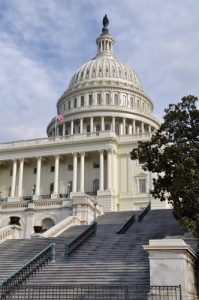
Want to know why you can’t obtain the average salary figures for graduates of a particular school?
You can direct much of the blame to powerful lobbyists for the nation’s private, nonprofit colleges and universities.
That’s the conclusion of a damning new study, which was funded by the Bill and Melinda Gates Foundation, that the New America Foundation released this month called, College Blackout: How the Higher Education Lobby Fought to Keep Students in the Dark.
Largely driven by the desire of private, nonprofit colleges and universities, Congress passed a law in 2008 that banned the federal government from creating a so-called federal student unit record system that would track students as they move through college — including transferring to different institutions – into the workforce. Data from millions of student record numbers would ultimately allow families to learn a lot more about the graduates of individual schools 
In my last post (see link below), I talked about the efforts of CollegeMeasures.org, a nonprofit organization that is working with states to create databases that will share the median salaries of graduates of specific schools, as well as by majors, who work within their borders. But this nascent state effort wouldn’t be necessary if the federal government wasn’t hamstrung by the 2008 law.
Guess What College Is Producing the Highest Earning Grads in Colorado
According to the New America report, the main culprit in this information blackout is the National Association of Independent Colleges and Universities, which was able to successfully defeat the drive for transparency and accountability by insisting that creating this system would violate students’ privacy.
In the report, the authors made this observation:

What’s amazing about the prohibition is that it happened despite the fact that most of the higher-ed world favors it. The report notes that the organizations representing state colleges and universities, along with public community colleges, favored allowing the federal government to implement the student unit number system that would lead to more transparency, as well as pressure on poor performing schools to change. These public institutions enroll nearly 75% of undergraduates.
It’s easy to see why private schools, which are far more dependent on federal funds than public universities that receive support for their state governments, would fear student unit record system. A new system would make it easier for the federal government to hold public and private institutions accountable for student success, which could reduce their federal assistance.
The legislation that included the data blackout, the Higher Education Act of 2008, is up for renewal this year. The act, which was originally signed by President Lyndon Johnson, governs the federal higher-ed programs. Let’s hope in this new battle for accountability, the right side wins.

“Fool me once, shame on you (IRS politically-motivating targeting scandal). Fool me twice, shame on me (NSA data-mining scandal).” Violations of privacy by the federal government are an all-too-common reality to simply dismiss out of hand. Until Bill Gates or the New America Foundation or anyone else can absolutely guarantee data anonymization, we need to find another way. We’re already seeing Gates et. al. initiate data mining in K-12 schools through Common Core without the promise of anonymity. Just because something wears the label “For the good of the children” or “educational reform” on it does not make it above reproach. How far have we fallen when tracking students for decades sounds like a good idea?
Hi Theresa,
If you read the report, you will see that there is huge amounts of data that schools are sharing now. I do share your concerns about the NSA, but there is no IRS scandal. The agency was looking at both liberal and conservative political groups that were using nonprofit status.
Lynn O’Shaughnessy